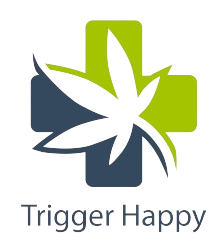THE SCIENCE BEHIND MICRODOSING MUSHROOMS: UNDERSTANDING SUB-PERCEPTUAL EFFECTS
Feeling foggy or stressed can make our daily tasks harder. Microdosing mushrooms has emerged as a surprising method to boost mental clarity and emotional balance. This article will explore the fascinating science of microdosing, revealing how small doses of psilocybin might offer significant benefits without the intensity of a whole psychedelic experience More Info Here.
Dive in for an enlightening read!
The Science Behind Microdosing Mushrooms
Microdosing involves taking a small, sub-perceptual dose of mushrooms to achieve subtle effects without experiencing hallucinations. Research suggests that microdosing may have potential benefits for cognitive enhancement, mood regulation, and even psychiatric disorders.
Definition of Microdosing
Microdosing involves taking tiny amounts of psychedelics like magic mushrooms. These doses are so low they don’t cause full-blown hallucinations or intense trips. People often use microdosing to seek cognitive enhancement, mood regulation, and increased creativity without disrupting their daily lives.
The idea is that these sub-perceptual effects can improve wellbeing without the risks of higher hallucinogenic doses.
Users typically follow a dosing guide to ensure they take the right amount for microdosing. This helps them avoid unwanted side effects while hoping to gain potential benefits for long-term wellbeing.
Advocates for microdosing suggest it could even aid in neuroplasticity and help with certain psychiatric disorders by impacting neurotransmitters like serotonin in the brain. However, a systematic study is needed to understand its impacts on health and cognition fully.
The Safety of Microdosing
Microdosing psychedelics involves taking a tiny, subthreshold amount of the substance. Research shows that microdosing is generally well-tolerated by most people and does not seem to pose significant risks to physical health when done with caution.
However, it’s important to note that the long-term effects of regular microdosing still need to be fully understood.
In empirical studies on microdosing, participants have reported few adverse effects. Nevertheless, it’s vital always to source your substances from reputable suppliers and start with tiny doses while being mindful of potential psychological reactions or interactions with other medications.
Evidence for Microdosing
Moving from the safety of microdosing to exploring evidence for its benefits, studies indicate that psychedelic microdosing may have positive impacts on long-term wellbeing. Research suggests that sub-perceptual effects of low-dose psychedelics can lead to improved mood, increased creativity, and enhanced cognitive function.
Empirical studies on microdosing also show the potential to reduce anxiety and depression symptoms without inducing hallucinogenic experiences. These findings pave the way for further understanding the therapeutic potential of microdosing with mushrooms and its role in promoting mental health.
Potential future directions could explore standardized dosing guidelines and rigorous clinical trials to comprehend the benefits and challenges associated with psychedelic microdosing entirely.
Understanding Sub-Perceptual Effects
This section will delve into the benefits and challenges of microdosing and empirical studies conducted on the practice. It will also explore potential future directions for research in this area.
Benefits and Challenges of Microdosing
Microdosing mushrooms can lead to improved mood, creativity, and focus. Users often report feeling more energized and motivated without the whole psychedelic experience. However, challenges may arise from inconsistent dosing effects and potential illegalities in specific locations.
Understanding these benefits and challenges is crucial for informed decision-making when considering microdosing.
Empirical studies on microdosing offer valuable insights into its effects on long-term wellbeing. Potential future directions in research could further enhance our understanding of the therapeutic potential of low-dose psychedelics.
Moving forward, carefully weighing the advantages and drawbacks before embarking on a microdosing journey is essential.
Empirical Studies on Microdosing
Moving from the benefits and challenges of microdosing to empirical studies, it’s crucial to highlight that research on low-dose psychedelics is gaining attention. Several empirical studies have shown promising results in terms of long-term wellbeing when using hallucinogens like mushrooms for microdosing.
These studies indicate potential positive effects on mood, creativity, and overall mental wellness.
Furthermore, empirical evidence suggests that microdosing may also contribute to decreased anxiety and stress levels among users. One study found that individuals reported feeling more balanced emotionally after consistent microdosing over several weeks.
Potential Future Directions
Research into microdosing mushrooms is paving the way for potential future applications in mental health treatment. Further studies could explore the long-term impact of microdosing on wellbeing, offering valuable insights into sustainable benefits.
Additionally, investigating optimal dosing schedules and personalized approaches may maximize the therapeutic potential of low-dose psychedelics for individuals seeking alternative treatments.
Moreover, examining the mechanisms behind sub-perceptual effects can guide the development of targeted therapies with minimized risks. Understanding these future directions could shape how online dispensary clients perceive and utilize microdosing as a tool for overall wellness and mental health support.
Conclusion
In conclusion, microdosing mushrooms offers potential benefits for long-term wellbeing. Understanding the sub-perceptual effects is crucial for maximizing its advantages. With ongoing research and empirical studies, the science behind microdosing continues to evolve.
Exploring this alternative approach safely and informally can lead to promising future directions.
…

